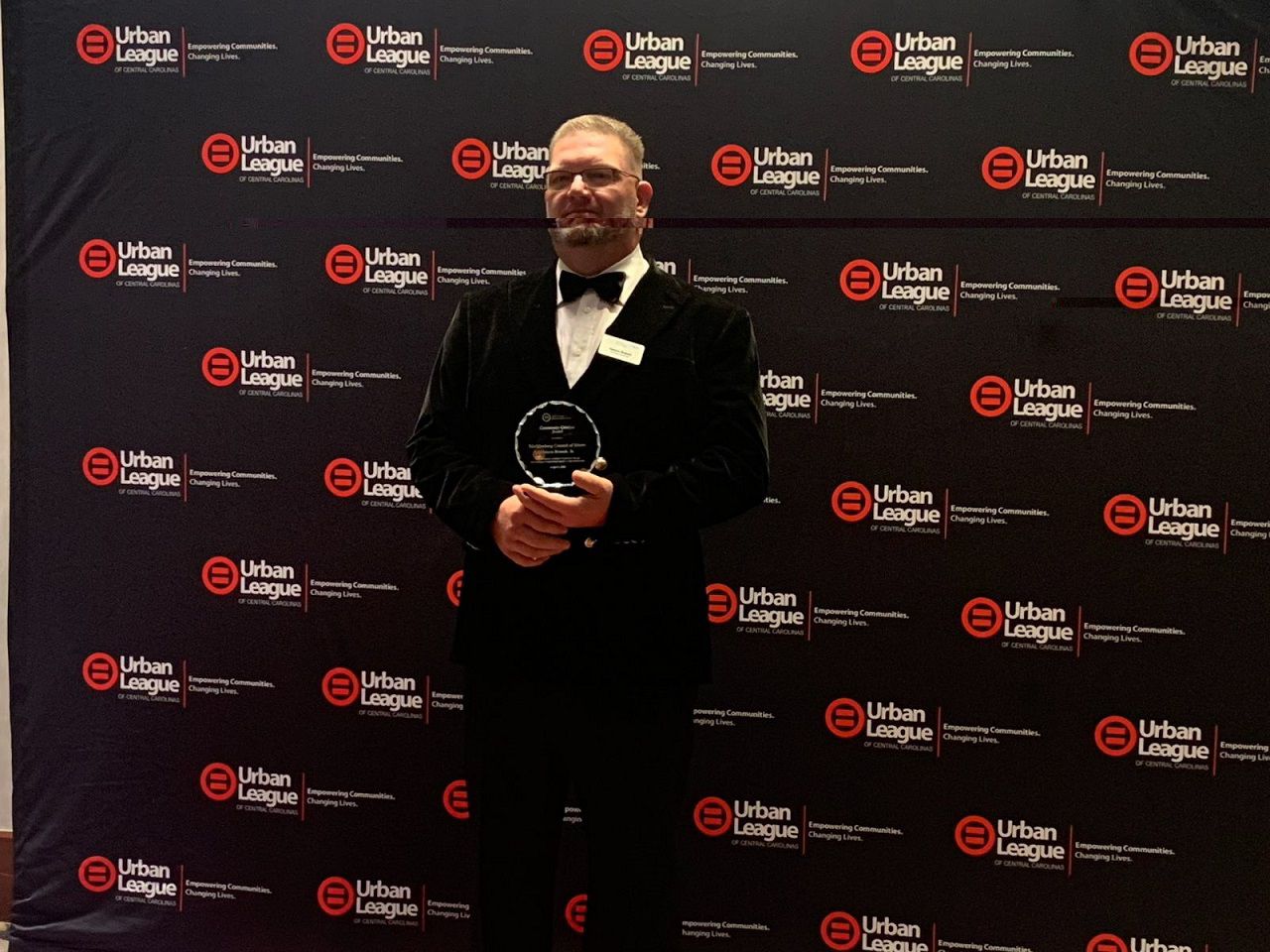CHARLOTTE, N.C. — Securing a job can be nearly impossible for those with a record.
The National Conference of State Legislatures reports up to 100 million Americans have a criminal record, which could range from misdemeanors to more serious crimes.
The NCSL says having a history in the criminal justice system makes it challenging to enter the workforce.
A North Carolina nonprofit is working to help residents facing these employment barriers.
The Mecklenburg Council of Elders works in the criminal justice sector.
It's providing services to Mecklenburg County residents so they know their rights, regardless of any past involvements with the law.
The organization hosts an expungement clinic four times a year to help eligible residents in need of a fresh start.
Nelson Branch Jr. is part of the council. He was recently recognized during Urban League of Central Carolinas' The Whitney M. Young Jr. Awards Gala for his efforts with impacting and changing lives.

Branch said the council's expungement clinics are helping at least 1,200 Mecklenburg County residents a year with getting cases on their records cleared, thus removing employment barriers.
"This is very much needed," Branch said. "The people have proved they're not a menace. They've had themselves clean for five years for misdemeanors and 10 years for felonies. They're not out here repeating the same crimes [and] don't deserve to be labeled because they made a mistake. They didn't kill anybody [but] made a mistake. You shouldn't have to pay your whole life for that. It's wrong to have this follow you around your whole life."
Branch said weeks of preparation goes into preparing for the clinic day.
"We do a lot of processing. We're doing a lot of work here before you walk into the door. We have to have the paperwork started at least a month and a half before," he said. "Once they get here, they come in and go through the process. They sit down with a lawyer who will tell them their options."
"If it's a case that can be expunged, they'll have a notary and everything will be signed off that day," Branch said. "Then they'll have a cleaner record."
He says the process will open doors for people.
"When a case is dismissed, why is it still on your record? Why do they have to come to us to get it dismissed?" Branch said. "When you do a crime and do your time, that should be erased after a certain amount of time if you're not doing it again, repeatedly over and over."
"That shouldn't be something people have to fight for, and that's what the Mecklenburg Council of Elders is fighting for, to get laws changed and get the process easier for everyday people," he said.
There are instances where a Mecklenburg County resident is not eligible for the expungement. In those cases, Branch says the council can provide other services to support them.
"Unfortunately, everyone can't get cleared because there are disqualifying charges," Branch said.
Branch said he relates to the employment struggles many of the residents he's helping are facing.
About two years ago, Branch says he was up for a job opportunity and didn't realize something from his past dating back nearly 30 years was on his record.
"I'm in my 50s and they judging me as a 20-year-old," Branch said. "I'm not the same person I was at 20. It's been 30 years since I've been in trouble. It's something that drags along. You should never be judged on who you used to be. Your past is your past and it should stay there."
Branch is proud to see workers and volunteers hosting the clinics, so residents get the second chance they need. He hopes more organizations statewide will work together to do the same.
"You're judged until the day you die unless you get a process like this to help you," Branch said.
The next expungement clinic is expected to take place in October.
It's a $35 fee for Mecklenburg County residents.
Branch said people are required to contact the organization and sign up ahead of time.



